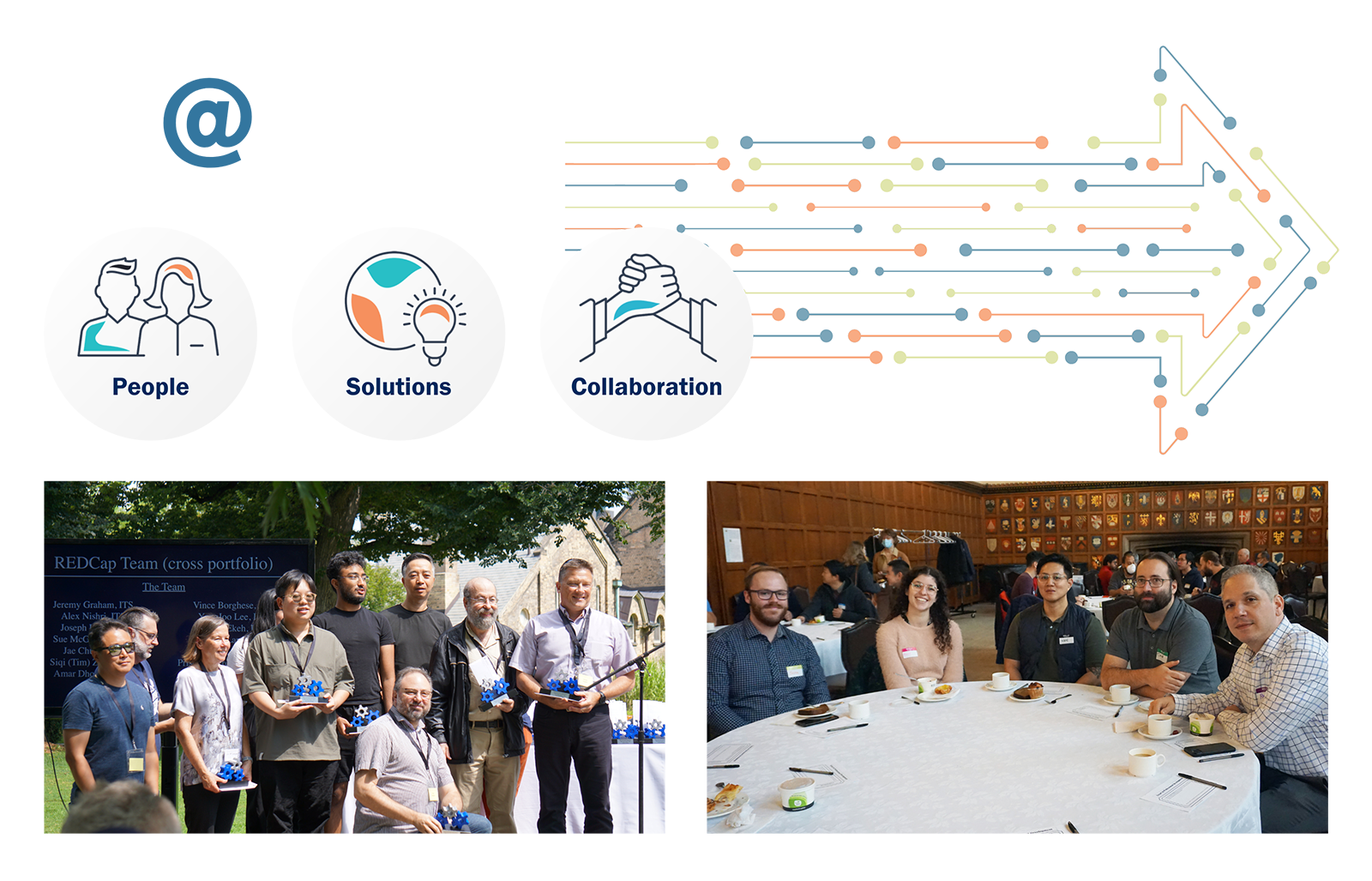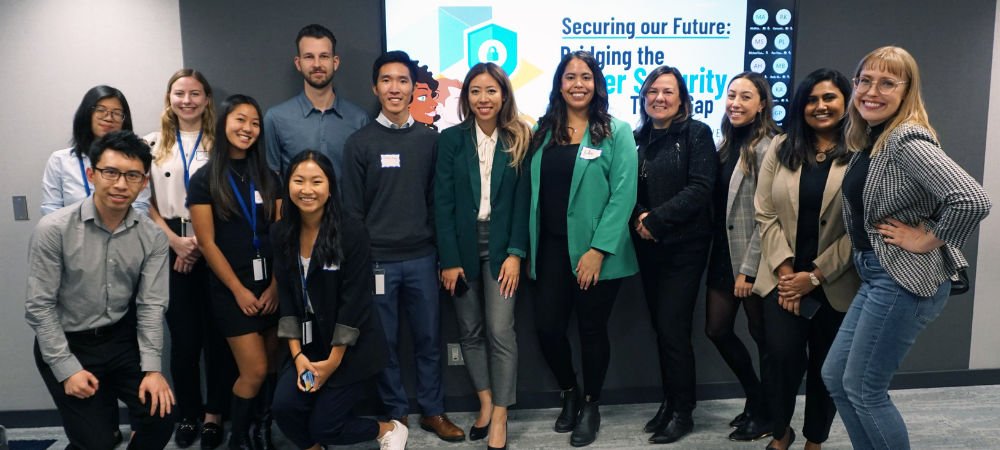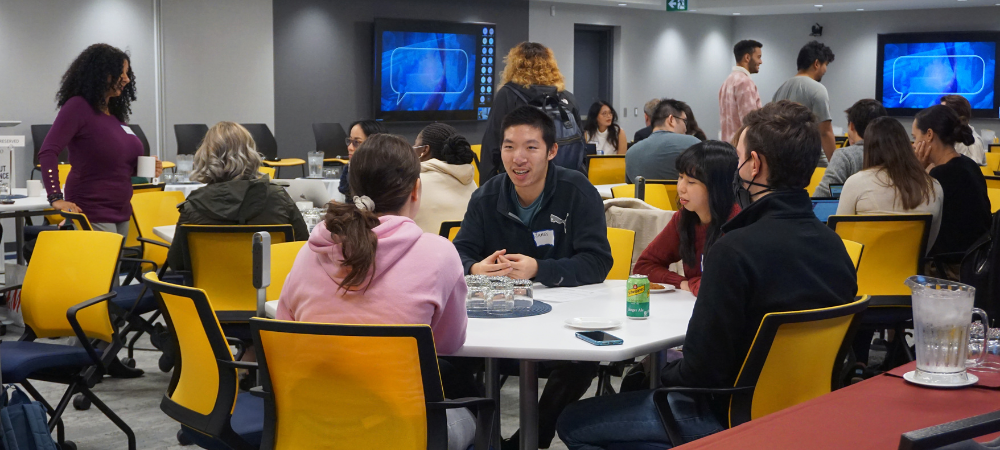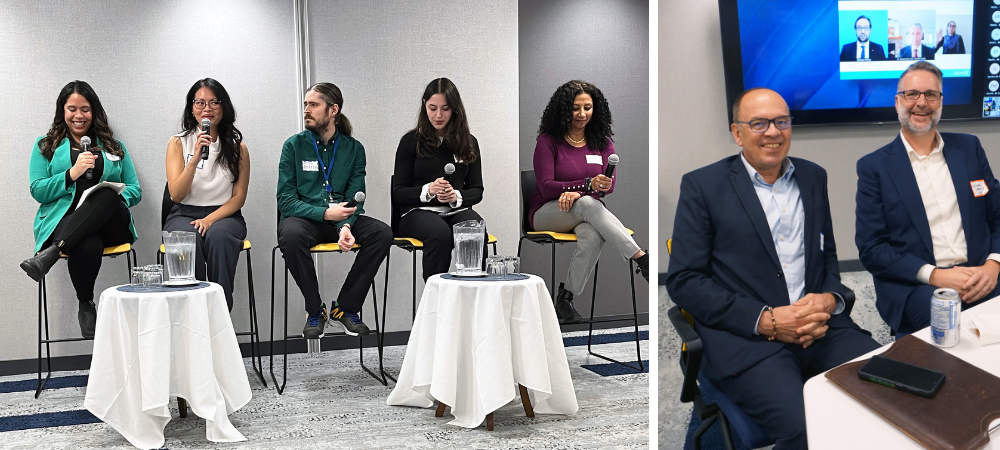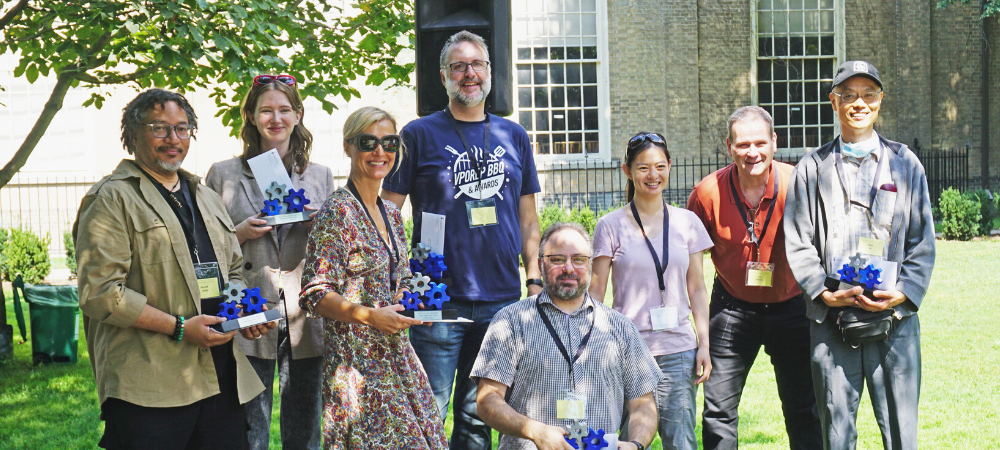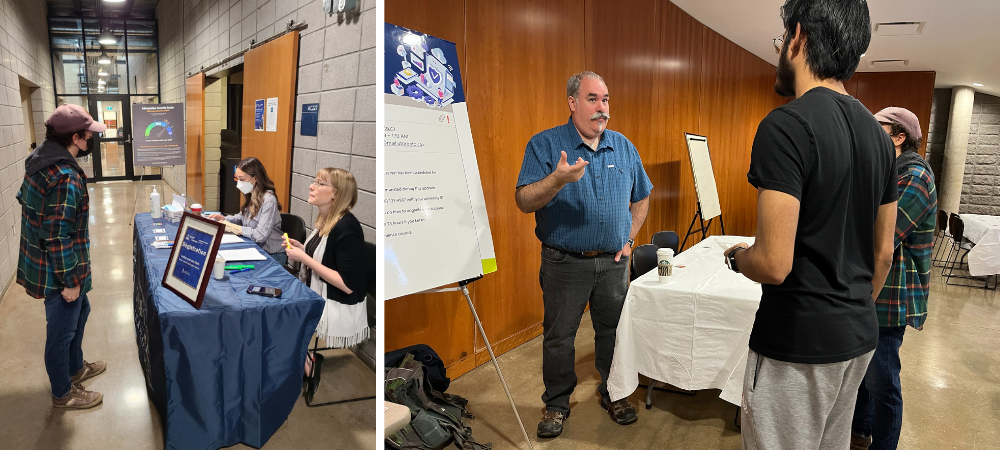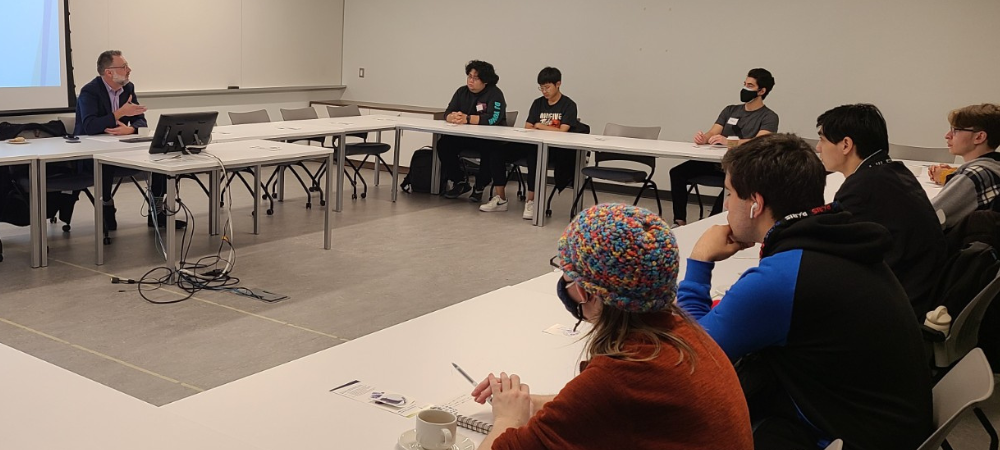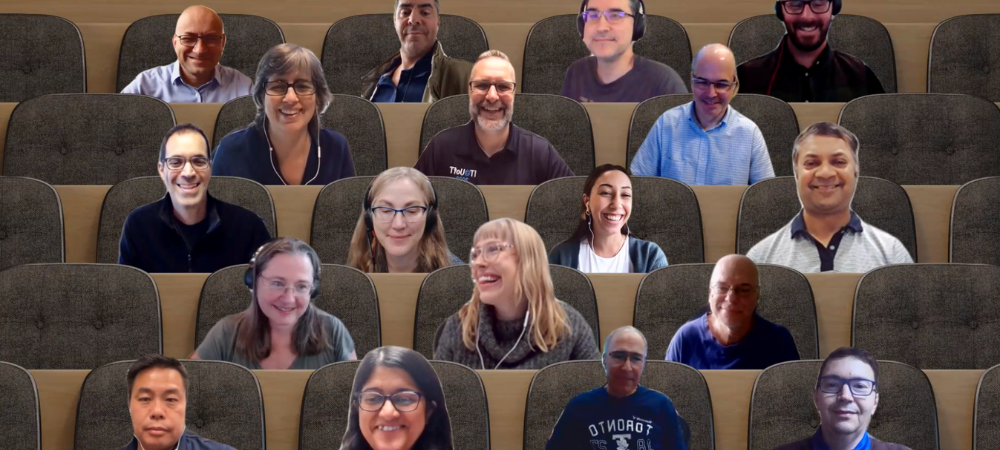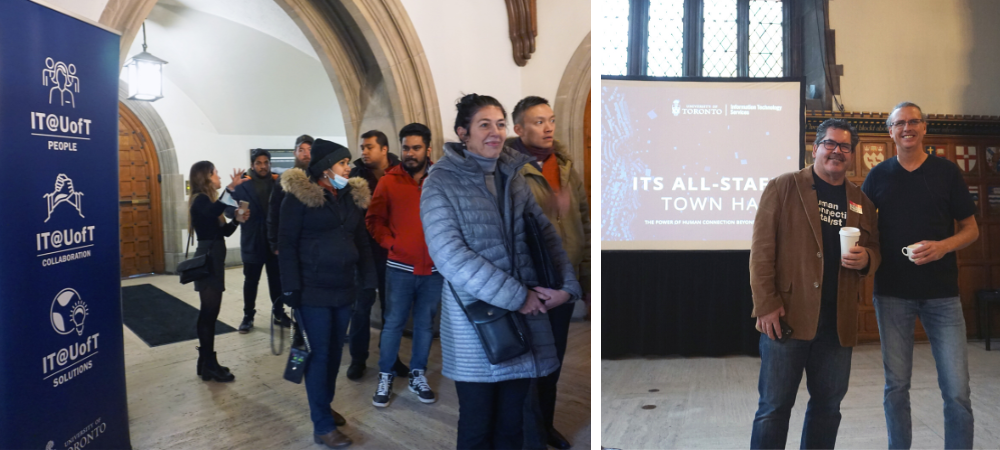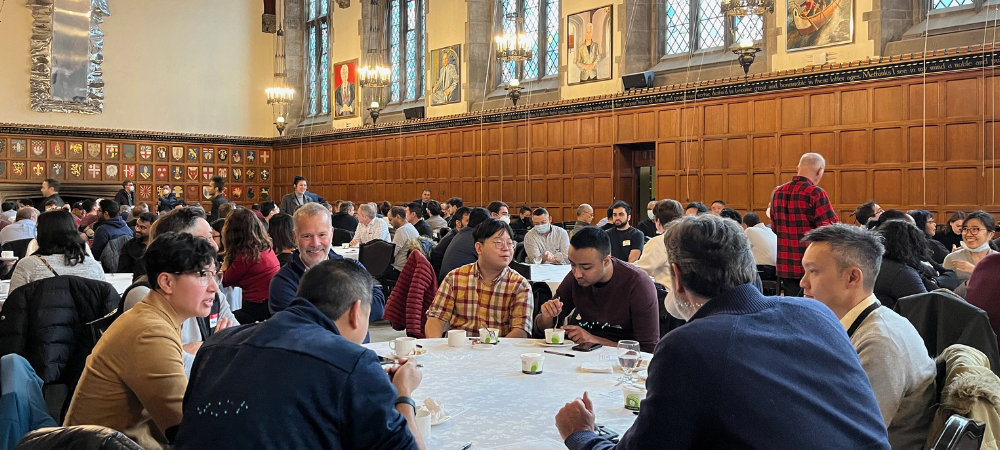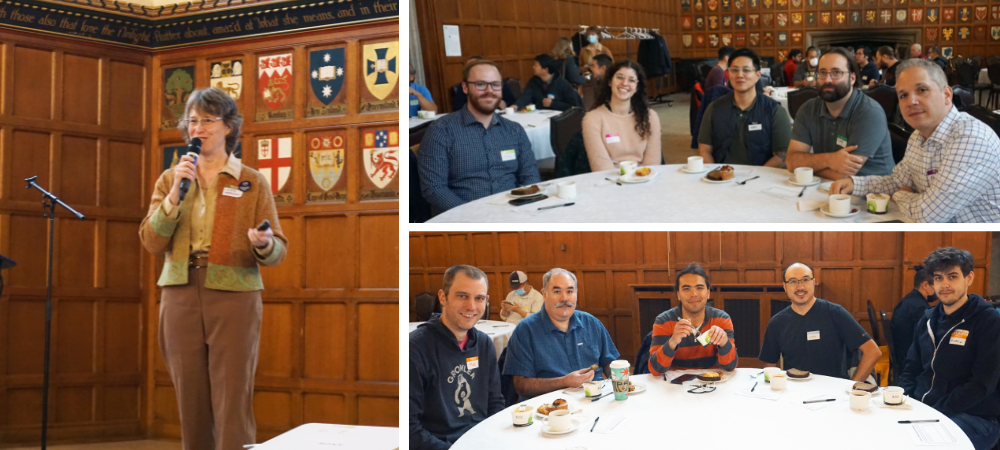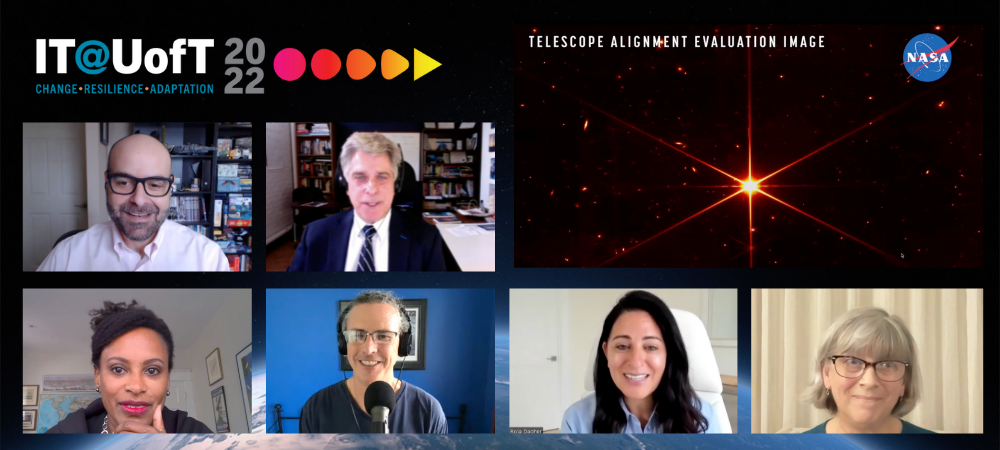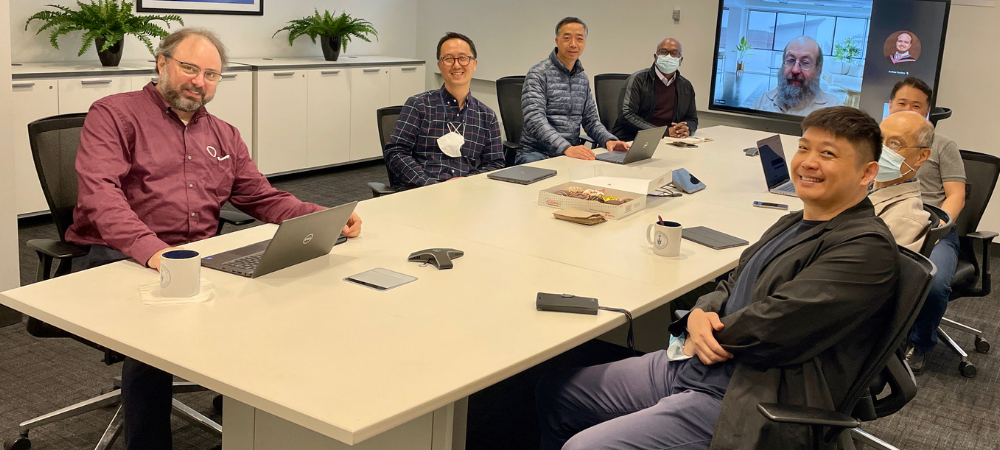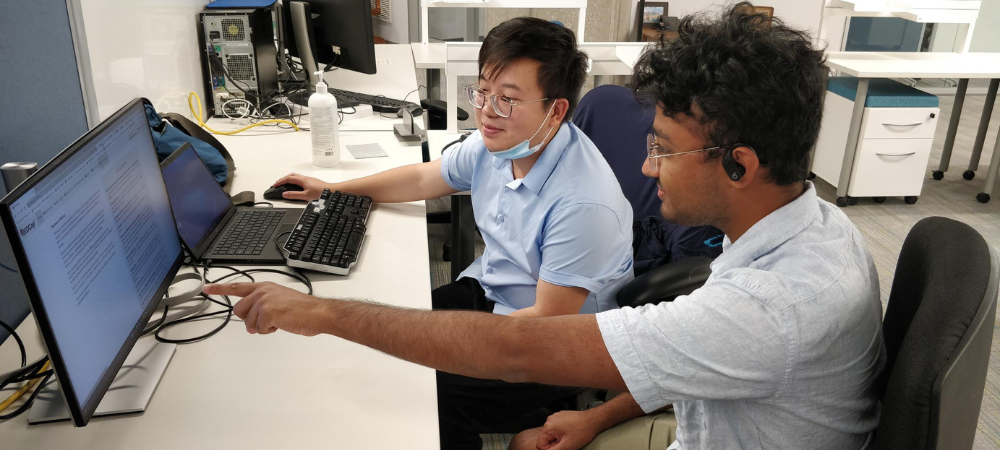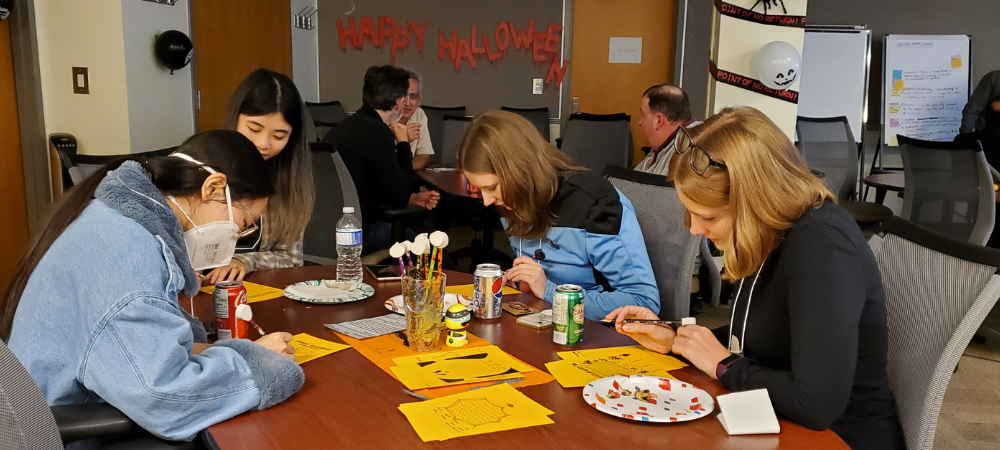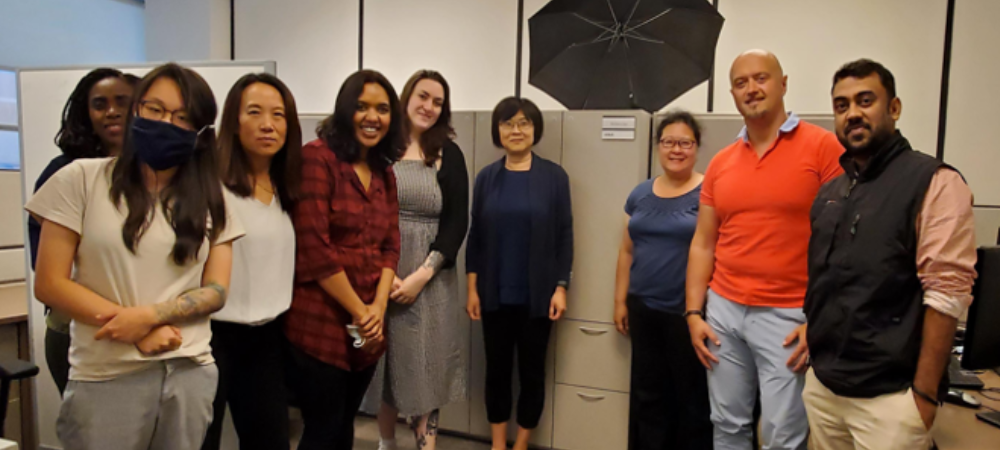


IT@UofT: Creating tomorrow today
We are pleased to share highlights of Information Technology Services’ (ITS) work and achievements in this 2022 annual report. As the community’s needs for services continue to evolve and we adapt to the impacts of COVID-19, our team has been able to catalyze new project work, while maintaining core infrastructure that is the foundation of our technology ecosystem. The highlighted initiatives featured in this report are among the most impactful and of the highest strategic importance to ongoing digital transformation in the workplace. New areas of focus are noted in the report section outlining upcoming initiatives for 2023. A full list of active projects within the ITS portfolio are listed under the IT@UofT Project Tracker.

Highlighted initiatives
While faculty and students’ return to campus was widely welcomed in the fall of 2022, we see a continuing demand for exploration and integration of new digital tools, processes and delivery modes. No longer reacting to the need for urgent responses during the pandemic, a refresh and a reset has been possible in recent months, aiming to empower community activity in a range of contexts.
Digital Tools: Supporting our students
- Zoom integrated in Quercus for online video conferencing and collaboration
- Hypothes.is for social annotation
- Piazza and Ed Discussion for online asynchronous discussion
Availability of these and other teaching tools has been enhanced by a full update of the Educational Technology support website, as well as the introduction of a new course design program for instructors, the Flexible Learning Initiative.


Director, Centre for Teaching Support & Innovation
Following close consultations with divisional stakeholders, a new Student Advising Service has been implemented in partnership with the Faculty of Arts and Science. This innovative solution, using the Salesforce Student Success Hub platform, presents the interconnected student story, streamlines the student and staff experience, ensures consistent and transparent service delivery and increases administrative efficiencies. Two divisions will begin using the tool in winter 2023, with staff functionality such as interaction tracking and notes, internal knowledge, referrals, staff appointment scheduling, reports and dashboards.
Keeping our community connected
The appetite for reliable and available highspeed access remains unabated. Working collaboratively with divisional partners, our network and communication infrastructure is addressing increased demand and local integration requirements.
- High-bandwidth wireless is being improved with a planned replacement of almost 10,000 wireless access points with Aruba Networks infrastructure deployed by the time this multi-year project is completed. This tri-campus project provides enhanced guest services, improved Wi-Fi connectivity for students in residence, advanced artificial intelligence analytics to assist in services like wayfinding and network operation and reduced operational cost through sustainable energy initiatives.
- UTmail+ upgrade took place over a six-month timeline for more than 145,000 remaining accounts, with all active email users guided through the move to the new Microsoft platform. Benefits include integration of other Microsoft 365 tools, better synchronization between devices, significantly more storage space, automated system updates and improved security.
- Microsoft device management services have been extended to four divisions through the new Distributed Intune Access initiative. This new offering takes advantage of central U of T Microsoft 365 services while still supporting management of computer equipment within local units. Divisional administrators and local IT teams can now provision and remotely manage devices for rapid, personalized service for their own community members, also enhancing security and incident response.

- 10,000 access points
- 145,000 email accounts updated
- 125 remotely managed devices managed in divisional pilot
Digital transformation of enterprise platforms
Continued efforts have resulted in significant efficiencies and performance enhancements across divisions by revolutionizing current infrastructure framework to ensure a consistent, intuitive and streamlined user experience. Initiatives from the past year include:
- Upgrade of the latest SAP technology underpinning all Administrative Management Systems.
- Initiated first steps for renewing the core Human Resources system with SuccessFactors Employee Central for a full hire to retire process, a new onboarding module and a streamlined, consistent digital user experience. This sets the stage for identifying potential efficiencies in HR support and moving core business processes to cloud-based services.
- Implemented SAP Plant Maintenance and Asset Manager applications to support Facilities & Services data access for improved management, maintenance and quick issue resolution for campus buildings and utilities.
- Compensation Planning Tool has introduced “made @ U of T” customizations for the financial planning community, while retaining the robust security, performance and familiar interface.
- My Research Applications & Agreements (MRA) now provides the U of T research community with modernized and user-friendly tools for submitting research funding applications and non-funded agreements. Recent upgrades to MRA have included building and integrating functionality for university block grants, automating access for teaching stream faculty and librarians and directly linking applicants to research security resources.
- Electronic Funds Transfer pilot successfully completed with 33 Canadian currency vendors transitioning from payments by paper cheque to direct deposit, increasing payment speed while reducing processing costs.
- Timetable Builder, Degree Confirmation and other innovative tool renewals support steps throughout the student lifecycle.
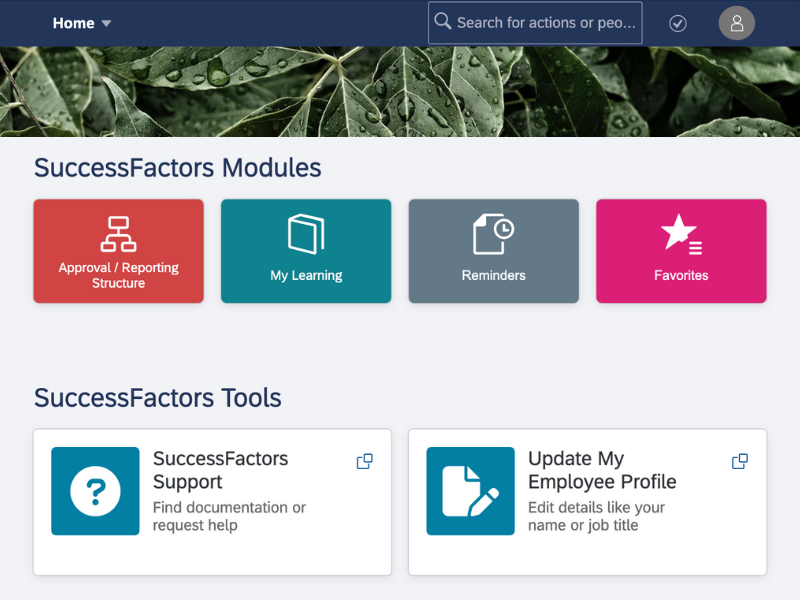


Chief Administrative Officer, Division of the Vice-President, Research and Innovation
Protecting our data
- Multi-factor authentication allows the U of T community to protect their UTORid account against credential theft, enabling them to securely access their data wherever they are.
- Significant improvements to UTmail+ security gives all community members access to new Microsoft Defender features such as Anti-Impersonation, Safe Documents, Safe Attachments and Safe Links that increase protection of personal data while using email. Users have assurance that suspicious activities are identified and neutralized, including controlling spoofed malicious emails to external recipients.
- New research information security program aims to increase research productivity through provision of security advice to scholars; assistance in assessing security needs for large research projects; and guidance to research teams in the adoption of security frameworks aligned with funding requirements.
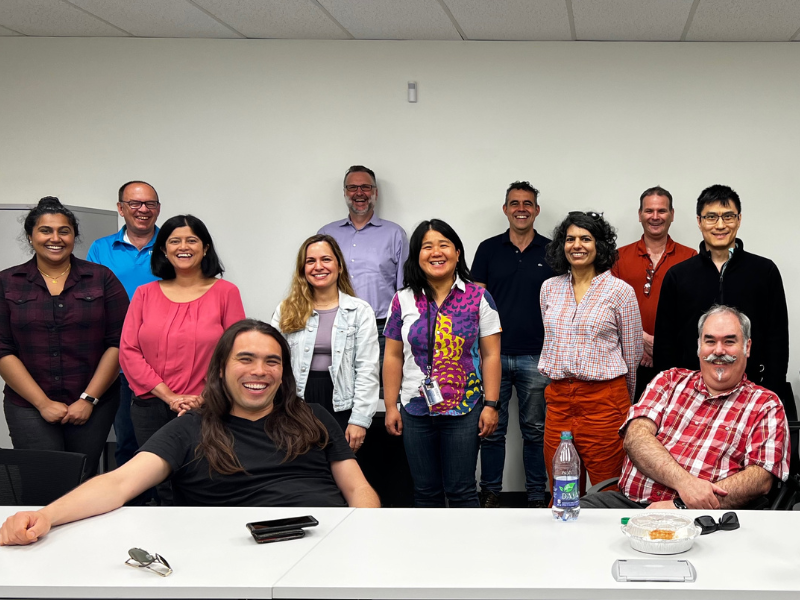
Building professional capacity across divisions
- The Microsoft Power BI Centre of Excellence was introduced to support professional development and access to institutional data analysis and availability of Power BI services to all faculty, staff and students.
- Consultations with academic divisions were critical in determining the state of their current IT services and preparing for future transformation.
- The new Hybrid Hub website and expanded Connect+Learn programming on the use of Microsoft tools supported the return to campus in fall 2022.
- The annual IT@UofT 2022 conference explored change, resilience and adaptation in higher education with 654 staff and faculty members from across the University participating.
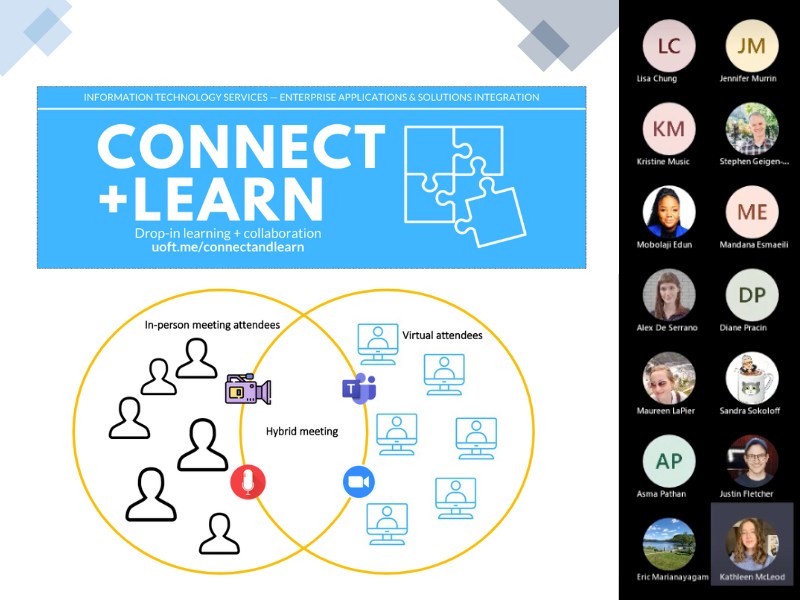
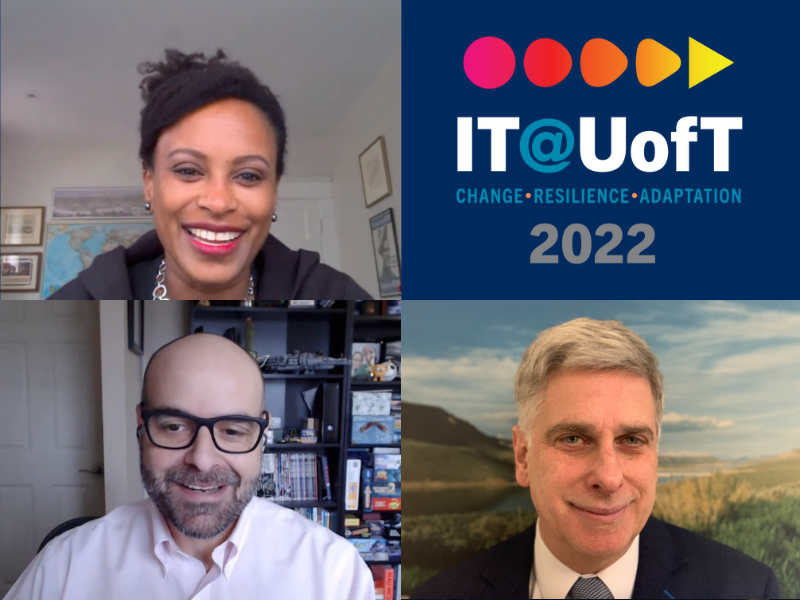

Upcoming initiatives for 2023
Extending cloud-based data and application hosting
- An enterprise-scale initiative will provide Azure landing zones and a turn-key architectural model that creates an Azure subscription with all the required security, roles, access, pre-built APIs and other services.
- Expanded and improved network security services will support cloud digital transformation while enhancing data security and ensuring resiliency.

Identity modernization program

Expanding information security services
- Securing endpoints against advanced security threats by providing the community with options for Next-Generation Anti-Virus and Malware platforms.
- Managing risk to critical assets by proactively identifying, tracking and reporting security vulnerabilities.
- Timely detection and response to security threats through use of tools such as threat intelligence service and delegated visibility into security alerts, allowing divisions to minimize adverse impact on the community.


Director, Information and Instructional Technical Services, University of Toronto Scarborough
Learning analytics – technology, people and process
- Instructor engagement to explore and analyze Quercus learner data to inform course design through the D3:QA Project.
- Community consultation in planning for a set of user-friendly dashboards, which can be accessed by any instructor to inform course design and pedagogical outcomes.
- Quercus record store will allow the institution to leverage Canvas Data Services to ingest, store, process and analyze Learning Management Engine usage data securely and at scale.
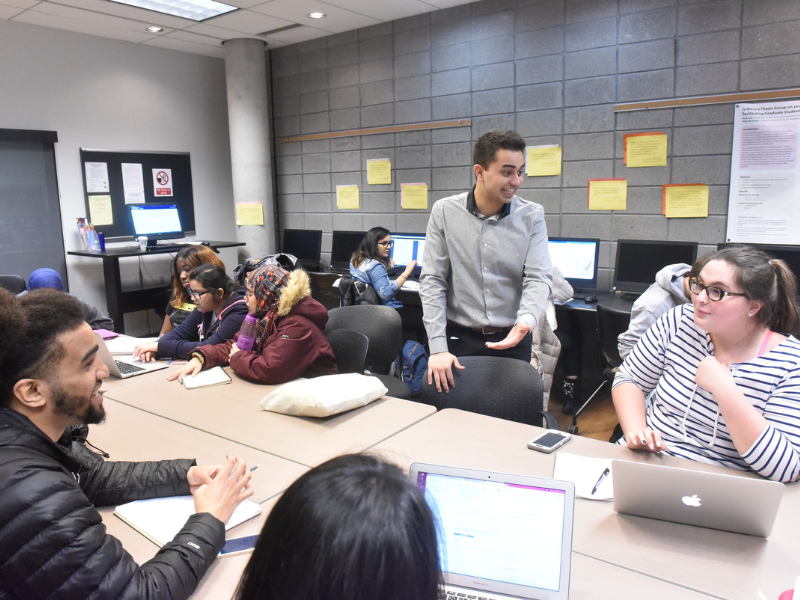
Digital workplace for IT@UofT
- Further expansion of our 365 product sets and security will explore the advanced features of the M365 platform available to the University. Some of the features we are currently investigating are the Power Apps low-code development environment, Power Automate automation services and Sensitivity Labels to protect content in Office 365 applications.
- VoIP telephony integration into Microsoft Teams environment will simplify telephone calling, leveraging the nearly ubiquitous MS Teams app that most users are already familiar with, and deliver additional cost savings across divisions and administrative units.
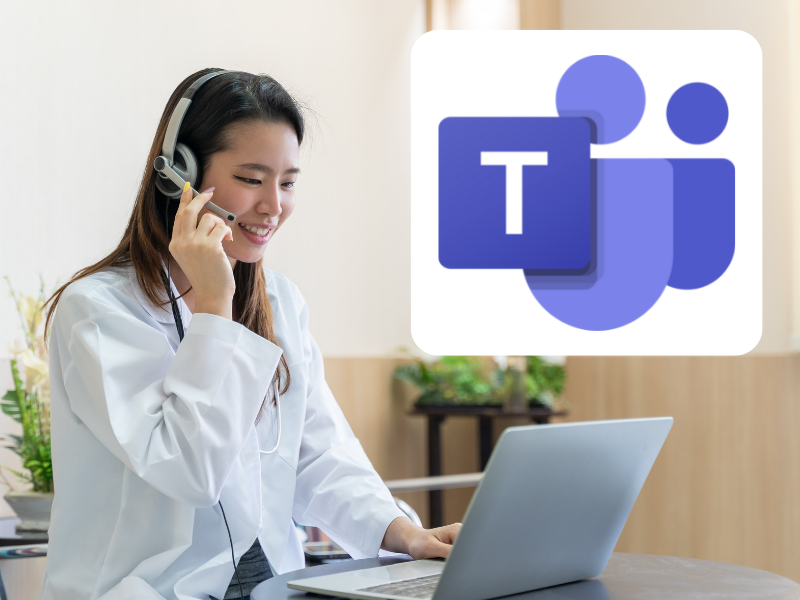
Partnerships to improve Enterprise Administrative Systems
- Digitization of financial, paper-based processes will take advantage of the significant upgrades of the SAP/Finance systems to SAP S/4 HANA. In partnership with Financial Services, a pilot initiative and long-term planning will modernize and streamline foundational procurement and accounts payable processes at the University.
- My Research Funds will provide an improved user experience and enhanced tools to aid researchers and administrators in managing research funding at the University of Toronto in partnership with the Division of the Vice-President Research and Innovation, updating My Research On Line and Funded Research Digest.
- New centralized software system for Environmental Health and Safety will reduce the risk of non-compliance and ensure institutional safety demands are met through sharing of information, automation of reminders and consolidated communication processes (e.g., inspections, training, equipment, biosafety, chemical safety and radioisotope management).
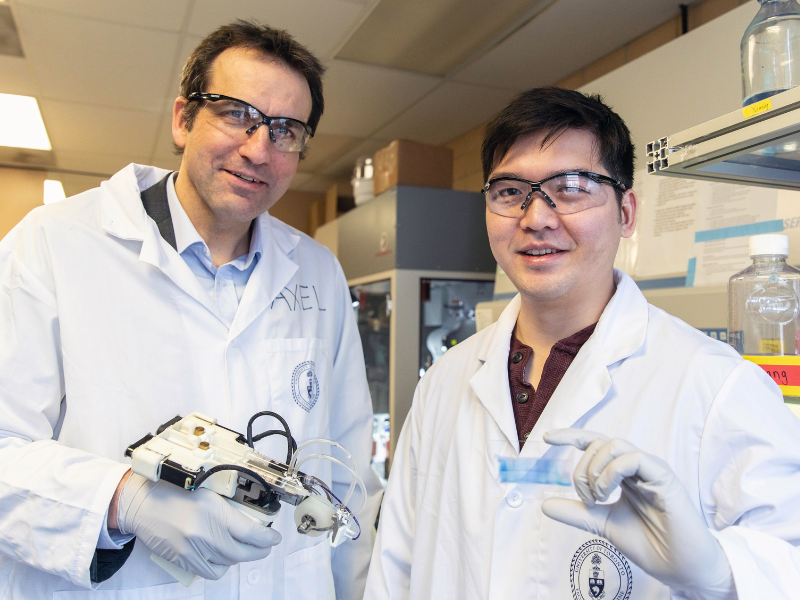
Supporting student success
- Accommodation Testing Services will be further expanded from instructor functionality to a full roll-out of the administrative application and a student request module in ACORN.
- New end-to-end Syllabus Builder Module will be developed within the Course Information System for the Faculty of Applied Science & Engineering with future roll-out to the Faculty of Arts & Science, University of Toronto Scarborough and University of Toronto Mississauga.
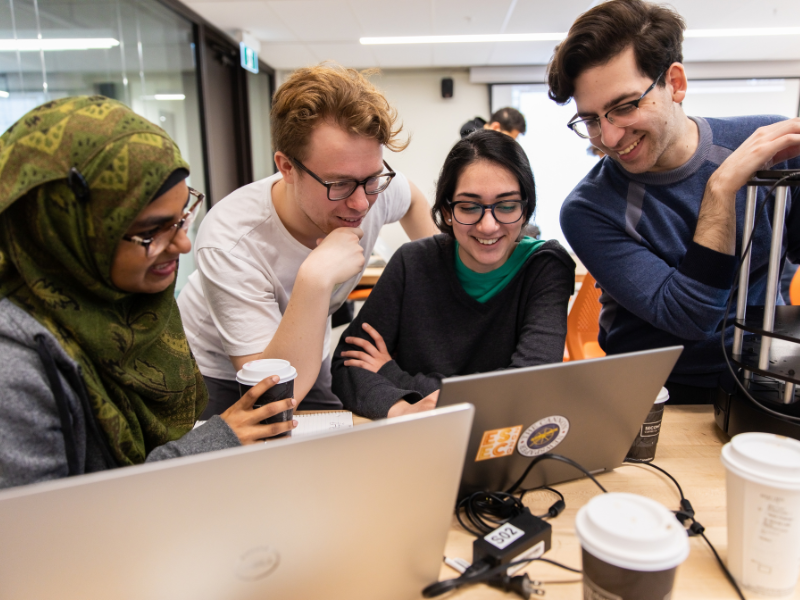
Teaching and learning tools for tomorrow
- Exam delivery software
- Grading tools
- Online proctoring service renewal

Research resource hub
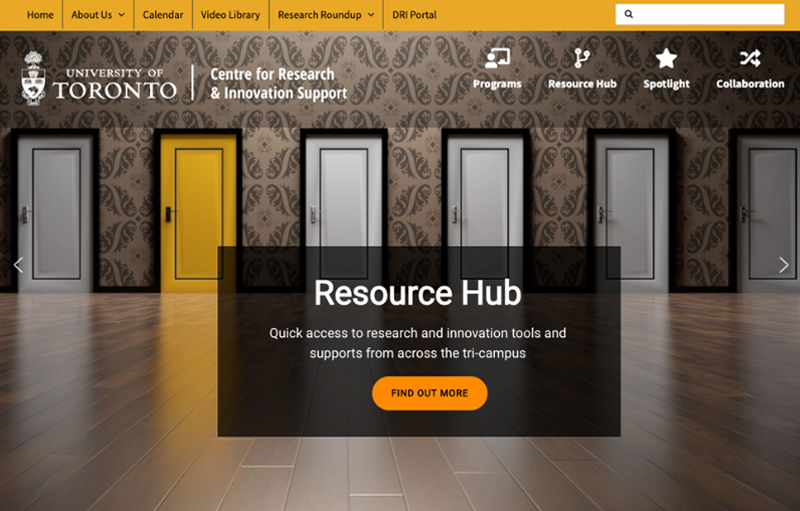
Information Technology Services is not an island – our actions are informed by the needs of our community.
Budget
In 2022, ITS continued to prudently manage its financial affairs. Through active financial management, a concerted effort was expended to maximize the use of financial resources to deliver on our stated objectives and initiatives and to minimize the amount of the carryforward.
ITS total expenditures
Total expenditures by category
Closing
Bo Wandschneider
Chief Information Officer (CIO), ITS

